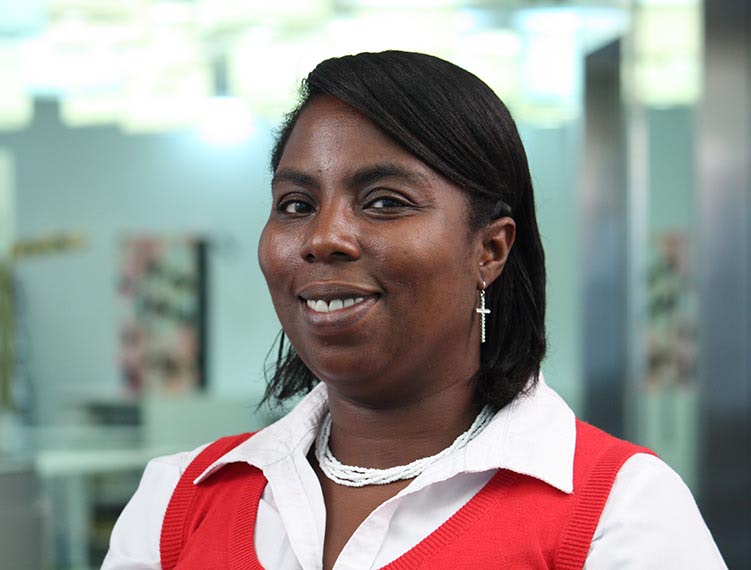Equipping young people with skills for life: Stimulating innovation and learning through competition

#LEP2019 – Investigating #ArtificialIntelligence and its impact on the world
Giving young people the opportunity for lateral and entrepreneurial thinking early on is vital to ensure they can thrive later in life. They need the freedom to think creatively and to problem solve in new ways, unlocking abilities and skills that stand them in good stead for both further education and employment.
As highlighted in Nesta’s Opportunity Lost report, currently only 1.5 per cent of the school age population across England have access to innovation programmes. This needs to change; all young people should have hands-on experience of innovation or invention during their time at school.
We need to make sure that opportunities to engage with innovation aren’t just for a privileged few, so that many more people from a wide range of backgrounds have the chance of a fulfilling career in an exciting sector.
One practical way to do this is to give young people the inspiration and space they need to come up with solutions to the issues they feel passionately about. The recent rise in youth environmental activism around the globe shows the desire of young people to create positive change – these are passionate, creative thinkers, applying problem solving to build a better future.
The rise of youth activism and engagement with societal issues also highlights even more the importance of the lessons young people learn outside the classroom. These are often the lessons that will prepare them to face the real world issues that can only be tackled collaboratively.
Education must support young people to develop a broad set of skills and attitudes to succeed in life – and that goes much further than sitting at a desk and learning for individual grades.
At Nesta Challenges, we run prizes to stimulate innovation and learning through competition. We pinpoint a problem and then offer a prize for the best solution.
As part of this, our Longitude Explorer Prize specifically looks to inspire creativity and entrepreneurship in young people within schools and youth groups to equip them with the skills they need for the rest of their lives.
#LEP2019 is on the hunt for 11-16 year olds who are passionate about making the world a better place, through #AI based solutions.
If you work with young people who’d be up for the challenge, apply with @NestaChallenges.
Applications close 29 November: https://t.co/nNzitE2IgM pic.twitter.com/Ozy7Uyf4Pb
— Digital Catapult (@DigiCatapult) November 16, 2019
The Longitude Explorer Prize fits neatly within the core curriculum but approaches creativity and thinking from a different angle. Now in its third year, the Prize provides practical experience of innovation and entrepreneurship to 11-16 year olds across the UK.
Using creative skills to advance society
As part of the application process, students are encouraged to think of artificial intelligence solutions to society’s biggest issues – from tackling pollution to living healthier lives. If their idea is shortlisted, they have the chance to work with expert mentors from the business and tech world to develop their ideas into a marketable product. This element of the prize is really important.
We’re not only running a competition to inspire innovation, we are helping today’s youth to understand that their ideas are valuable and could help to advance society and shape the future.
Previous finalists have worked with IBM to develop and test their idea and turn it into a reality. We’ve already seen some amazing concepts through previous years of the Prize, including an app which helps charities coordinate the logistics of supporting vulnerable people across the world.
Young entrants also came up with a navigation tool for ambulances, which allows crews to check live data about nearby hospitals such as available beds, as well as a wearable device for people on the autistic spectrum, which changes colour based on sensory information to reflect the emotions of its wearer, allowing teachers to be alerted to the anxiety levels of their students without verbal communication.
And it’s not just the young people taking part who benefit – the winning teams’ youth group or school is awarded £25,000 to invest in STEM and entrepreneurial activities, or support their team with the ongoing development of their concept.
Using competition to build confidence and capability
The element of competition is also a crucial part of skills development for the young people in building confidence and capability. Through a Dragons Den style pitching event, finalists of the prize get the chance to develop and put forward their business case.
This is one of the most rewarding stages of the process and pushes students out of their comfort zone, helping them to develop valuable skills for their future job interviews or building their own business.
Data from 2017 showed that 100% of students had a better understanding of entrepreneurship and 100% of teachers would take part again.
These types of competitions play a crucial role in enhancing skills and opportunities, especially amongst those who are currently less likely to become innovators in future careers.
Over the last 15 years, just 7% of the people who applied for patents in the UK were women and 15% of UK scientists are from working-class backgrounds, even though these make up 35% of the overall population.
Through the Longitude Explorer Prize we ensure that we are doing all we can to reach these groups through direct outreach and our messaging to teachers. We’ve also, this year, expanded our target audience to youth groups.
As we continue to live through the major societal transformations we are experiencing, it’s more crucial than ever to bring young people together and equip them with the skills for life, so that they can feel prepared for navigating the world as it continues to change.
Constance Agyeman, Head of Communities, Nesta












Responses